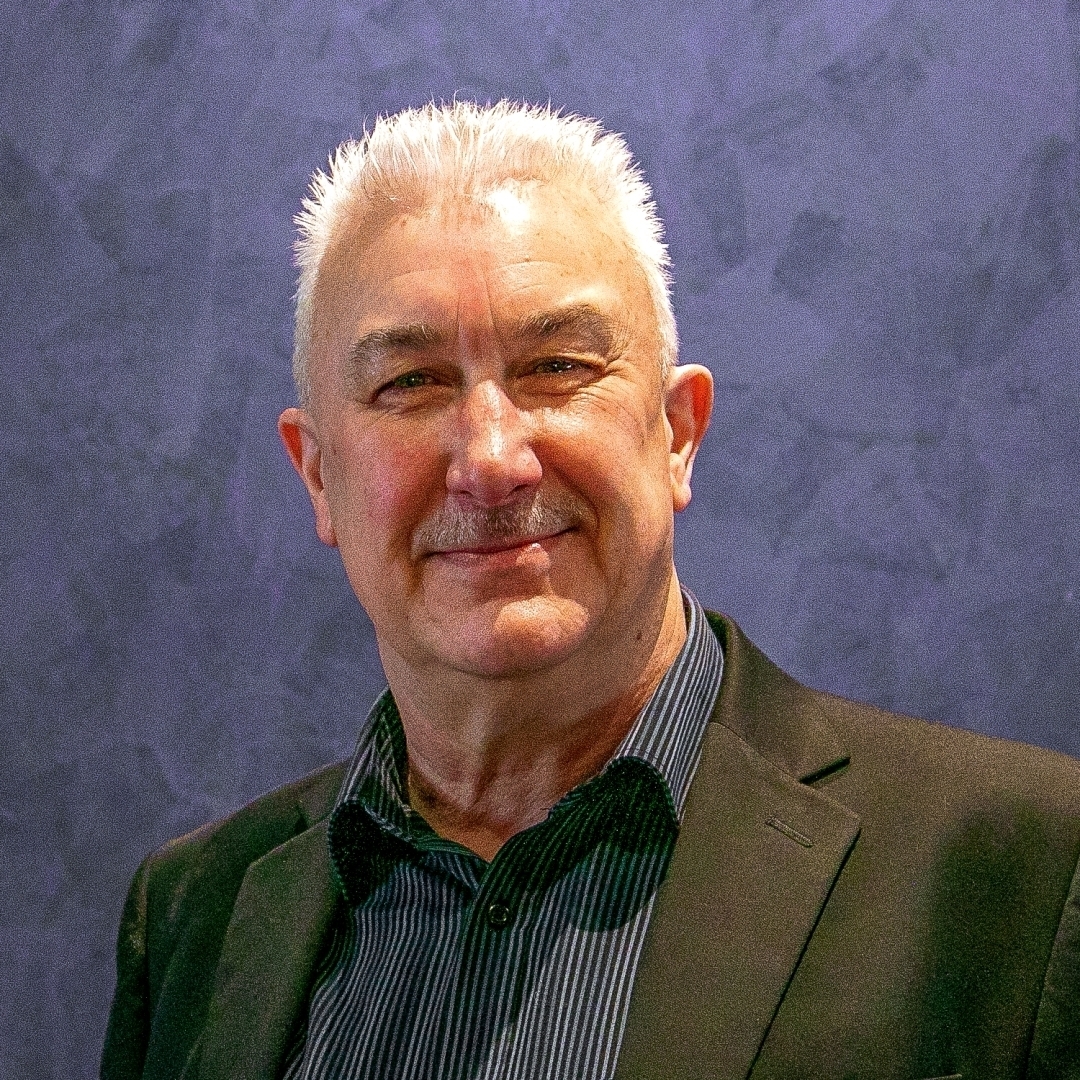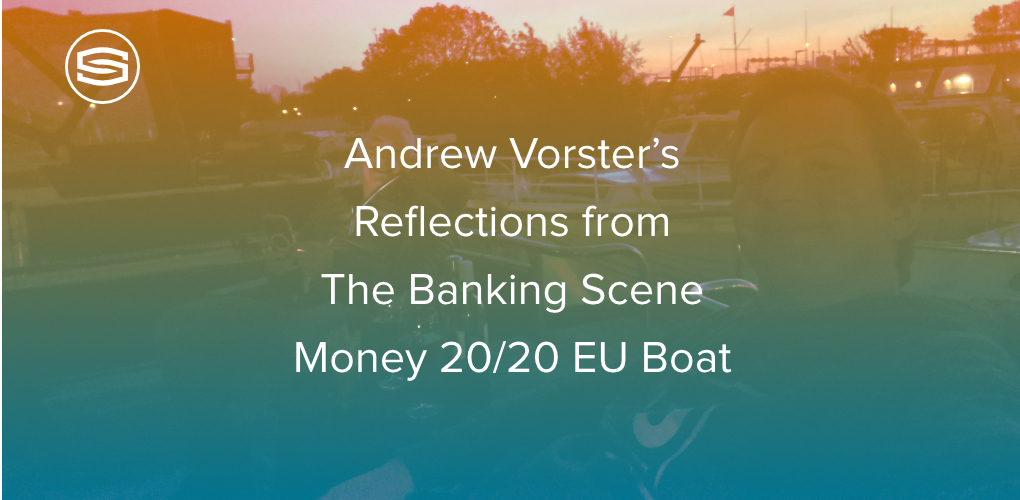
Insights & Opinions
Andrew Vorster’s Reflections from The Banking Scene's Money 20/20 EU Boat
Tue, 20 Jun 2023


I thought it was just me.
I thought maybe it was because I’d spent so much time at financial services conferences and events over the last 20 years? Or perhaps I’d just gotten old and cranky? (No comments, please).
The sound bites from the sessions at Money2020 were, as you’d expect, littered with trendy buzzwords, and of course, you couldn’t escape mentions of AI and ChatGPT. But as I rushed from stage to stage, I couldn’t shake the feeling that many speakers were simply slapping new labels on old things.
I decided to do a quick sanity check and started gathering clips from a few outspoken people that were willing and able to openly share their thoughts. My “provocation” came in the form of the following question: “What word or phrase triggers you (in a good or a bad way) when you hear it on stage?”
Louise Smith (Chair of Innovate Finance UK) immediately seemed to be on my wavelength, as her instant response was “talking about something new that’s not new”. This summed up a large amount of the content on stage, as we saw the same topics rehashed time and time again. Lou rattled off examples, including financial crime, financial inclusion, ethical inclusion, climate, and greenwashing.
Her point was that as an industry, we’ve been talking about these things for years, and the time to step up and solve them is long overdue. She also picked up on a new buzzword shared on stage: “narrowcasting”.
Seriously? This is yet another new label slapped on something discussed for many years in financial services circles and many other industries. Narrowcasting refers to “niching down” by providing highly targeted products and services for smaller and smaller segments that may have previously been overlooked or inadequately served.
This is by no means a new concept and, by now, should be well integrated into the playbook of any business, not just those in financial services. I don’t know who said it and I didn’t ask Lou to name and shame, but this is exactly the kind of noise that we don’t need in the industry.
Stop with the jargon and fluff; it’s not doing you any favours!
Martha Mghendi-Fisher (Chair of EWPN) gets particularly riled up by the term “ethical finance” as she doesn’t believe the financial services industry does enough to block transactions related to human crimes. She doesn’t want to hear people talk about ethical finance until we tackle their biggest ethical problems, including the financing of modern-day slavery, human trafficking and child sexual abuse. It was initially thought that a cashless society and digital economy would hamper criminal activities, and digital adoption increased globally during the covid pandemic.
But criminals have found ways to circumnavigate controls, and their activities have continued, largely unaffected by the move to digital and cashless. Martha strongly urges the industry to unite to solve the problems and stop using “ethical” as a marketing label slapped onto their latest product because it’s trendy.
Another trendy phrase that frequently popped up was “access to finance for all”, which immediately sends Conny Dorrestijn into a fit of rage when this is included in the same sentence as BNPL (Buy Now, Pay Later).
Access to (basic) financial services for everyone is mandated in many countries, and it is a fundamental step towards full financial inclusion. BNPL does not equate to “access to finance” and labelling it as such trivialises the underlying problem when some consumers can pay for a takeaway in instalments while others can’t even open a basic bank account.
On the topic of payments, Silvia Mensdorff-Pouilly of FIS despairs at the continued trend towards “frictionless payments”. While it is beneficial for <some> payments to be entirely friction-free, for example, transit payments on the bus, train, tram etc, where friction causes queues and delays, she is adamant that others benefit from the “right amount of friction”.
She encourages the industry to seriously consider the unintended consequences of the current obsession with removing all friction from all forms of payment, which could adversely affect consumers by encouraging them to spend beyond their means.
Erin Taylor takes exception to the fact that most people assume that lower-income groups have poor financial literacy. Her research at Finthrapology has revealed that while lower income groups might score low on a formal test, their real-world knowledge of transaction fees, rates and offer very often exceeds that of affluent consumers. Financial literacy is not solely the problem of the poor, and she urges the industry to stop thinking of it in that way and stop repeating it on stage!
“Trust” is the word that triggers Erin’s co-founder Anette Broløs. She points out that many people talk about the importance of trust without explaining what they mean. Trust in banks?
Trust in Fintech? Trust in technology? Trust in Government? Trust in the system? The recent high-profile incidents of failure in almost every single one of these have shaken the public’s confidence. What exactly are we doing to earn the trust we expect to be given to us?
It wasn’t all doom and gloom, however. Simon Boonen of ING said he observed a positive movement away from talking about tech and rather focussing on solving real customer problems. He went on to say that in the past, everyone seemed to be caught up in the latest tech and, for a time, seemed to lose sight of why they were doing it. Solving customer problems is (or should be) at the very heart of everything we do.
More concrete case studies shared on stage would be welcomed.
Lina Žemaitytė-Kirkman locked onto the many mentions of partnerships. She is a firm believer that partnerships and collaborations between Fintechs and Banks drive far better outcomes for all based on her experience at Rockit Vilnius and I’m inclined to agree with her.
More collaboration and less of the tired old “Fintechs VS Banks” sessions in the future, please.
The final soundbite came from our good friend Paolo Sironi who says he meets many Fintech entrepreneurs with ambitions to “break banks”. His response is: “You can’t break banks because they are already broken”.
Since Paolo loves a good “mic-drop” moment, I’ll just leave it at that.
In spite of how it might have sounded at the start of this post, my overall Money2020 experience was overwhelmingly positive.
As I rushed from stage to stage, I bumped into people that I already knew, who would often introduce me to new people. The brief conversations that followed, or the much longer ones that took place in the many networking spaces and side events, made it feel like a massive high-school reunion.
We all caught up, shared insights, swapped stories about exciting things we had seen and gave each other tips on which stands to visit or companies to pay attention to. The people, connections and conversations that didn’t take place on stage were the highlights of the show for me.
I’d like to take this opportunity to extend my deepest gratitude to Rik, without whose support I wouldn’t have been able to attend Money 2020 this year. The growth of my own personal network of friends and connections over the past few years has largely been due to my ongoing and increasing involvement with The Banking Scene.
Rik has built a fantastic community of financial services professionals that share a common passion to do better. Better for their company, their customers, their industry and better for society in general.
Banking might be broken as Paolo suggests, but if you’re reading this post, you’re probably one who can and will fix it.
Welcome to the community, I look forward to meeting you at the next reunion, a Banking Scene one, of course!
For more Money 20/20 Europe 2023 discovery, you are advised to have a look here:
The Banking Scene Talks at Money 20/20 EU with John Mitchell, CEO and Co-Founder Episode Six



